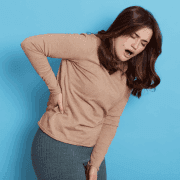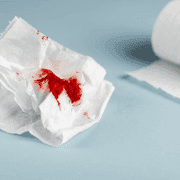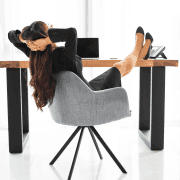How Constipation Causes Piles
In This Article
How Constipation Causes Piles
Elena
Updated on November 11, 2024
Medically verified by Dr. Arya
Fact checked by Dr. Fazeela

Proctology
5 min read
Piles, also known as hemorrhoids, are swollen blood vessels in and around the rectum and anus that can cause discomfort, itching, and pain.
One of the most common contributing factors to the development of piles is chronic constipation.
Understanding how constipation leads to piles is essential in managing and preventing this painful condition.
Curious about how constipation can lead to piles? Wondering how to avoid it?
In this blog, Mykare Health will take you through the details about this matter.
What Are Piles?
Piles can be internal (inside the rectum) or external (under the skin around the anus). Internal hemorrhoids are usually painless but can cause bleeding, while external hemorrhoids can be painful and swollen.
Both types occur when veins in the anal region become enlarged due to pressure.
Understanding Constipation
Constipation is characterized by infrequent bowel movements, hard stools, or difficulty passing stools. It occurs when the digestive system slows down, leading to dry, hard stools that are difficult to pass.
Constipation can be caused by various factors, including poor diet, dehydration, lack of physical activity, and ignoring the urge to go to the toilet.
When constipation becomes a chronic issue, it can lead to complications like piles, as the act of straining to pass stool increases pressure on the veins in the anal region.
How Constipation Leads to Piles
1. Increased Straining
One of the main ways constipation causes piles is through increased straining during bowel movements. Straining occurs when you have to exert extra pressure to push out hard stools.
This pressure affects the veins in the lower rectum and anus, leading to swelling and irritation. Over time, this consistent straining can result in the formation of piles.
2. Hard Stools Scraping the Anus
Passing hard stools can physically damage the lining of the anus and rectum. The constant scraping and irritation caused by hard stools can lead to inflammation and enlargement of the veins, eventually causing piles.
The rough texture of hard stools can also tear the delicate tissue in the anal region, increasing the risk of hemorrhoid development.
3. Prolonged Sitting on the Toilet
People suffering from constipation often spend more time sitting on the toilet as they struggle to pass stools. Sitting in this position for extended periods puts additional pressure on the veins in the anus and rectum, exacerbating the risk of piles.
The longer you sit and strain, the more likely you are to develop hemorrhoids.
4. Increased Pressure on Blood Vessels
Constipation also leads to an increased buildup of pressure in the blood vessels around the anal region. As the pressure builds up, the blood vessels swell and become engorged, leading to the formation of piles.
This is why constipation is one of the leading causes of hemorrhoids, as the constant pressure wears down the walls of these blood vessels.
5. Lack of Bowel Regularity
When you are constipated, bowel movements become irregular and less frequent. This irregularity forces your body to exert more effort each time you have a bowel movement, further stressing the blood vessels in the anal area.
The less frequent your bowel movements, the more likely you are to strain when you finally pass stool, thereby increasing the risk of piles.
 5 min read
5 min readDon't Ignore Bummy Pain: Could It Be Piles?
 7 min read
7 min readBlood In The Stool: A Sign You Shouldn’t Ignore
 6 min read
6 min readSitting All Day Wreaking Havoc? It Might Be Piles!
Get a Callback Now
Preventing Piles by Addressing Constipation
Since constipation is a major cause of piles, preventing or relieving constipation can significantly reduce the risk of developing hemorrhoids. Here are some strategies to help manage constipation and prevent piles:
1. Increase Fiber Intake
One of the best ways to prevent constipation is by consuming a diet rich in fiber. Fiber helps to bulk up the stool and makes it easier to pass. Foods like fruits, vegetables, whole grains, and legumes are excellent sources of fiber.
By softening the stool, fiber reduces the need for straining during bowel movements.
2. Stay Hydrated
Dehydration is a major contributor to constipation, as the body absorbs too much water from the stool, making it hard and difficult to pass.
Drinking enough water—at least 8 glasses per day—helps to keep stools soft and easier to pass. Staying hydrated reduces the likelihood of developing constipation and thus lowers the risk of piles.
3. Exercise Regularly
Physical activity helps to stimulate bowel movements by improving circulation and promoting healthy digestion.
Regular exercise, such as walking, swimming, or jogging, can reduce the likelihood of constipation and the subsequent development of piles.
4. Don’t Delay Bowel Movements
It’s important not to ignore the urge to have a bowel movement. Delaying can cause the stool to harden and become difficult to pass, increasing the risk of straining.
Promptly responding to your body’s natural signals can help prevent constipation and reduce the chances of developing piles.
5. Avoid Straining
Straining during bowel movements is a leading cause of piles. To avoid straining, sit in a relaxed position and give yourself enough time to pass stool without feeling rushed.
You can also elevate your feet slightly using a footstool to create a more natural squatting position, which makes passing stools easier.
Treatment Options for Piles Caused by Constipation
If you already suffer from piles due to constipation, there are several treatment options available to alleviate symptoms and promote healing
1. Over-the-Counter Medications
Hemorrhoid creams, ointments, and suppositories can provide relief from symptoms such as itching, pain, and swelling. These medications typically contain ingredients like hydrocortisone or witch hazel to reduce inflammation and discomfort.
2. Sitz Baths
A sitz bath involves soaking the anal area in warm water for 10–15 minutes several times a day. This can help to reduce swelling, promote healing, and provide relief from pain and itching.
3. Stool Softeners
Stool softeners or fiber supplements like psyllium can help make bowel movements easier to pass without straining, which can prevent the worsening of piles.
4. Surgical Treatments
In severe cases of piles, where conservative treatments do not work, surgical options may be necessary. These include procedures like rubber band ligation, sclerotherapy, or hemorrhoidectomy to remove or shrink the piles.
Constipation is a leading cause of piles – Chronic constipation increases the risk of hemorrhoids by causing straining and pressure on anal blood vessels.
Straining during bowel movements – Straining due to hard stools puts direct pressure on the veins, leading to swollen and irritated veins (piles).
Straining during bowel movements – Straining due to hard stools puts direct pressure on the veins, leading to swollen and irritated veins (piles).
Prolonged sitting worsens the condition – Sitting on the toilet for long periods while constipated adds to the pressure on the anal veins.
Dehydration contributes to constipation – Lack of water intake can harden stools, increasing the risk of piles.
A fiber-rich diet prevents constipation – Eating plenty of fruits, vegetables, and whole grains helps keep bowel movements regular and soft.
Exercise aids digestion – Regular physical activity helps prevent constipation and promotes bowel health.
Respond to bowel urges promptly – Ignoring the need to pass stools can worsen constipation, increasing the risk of piles.
Over-the-counter treatments can help – Hemorrhoid creams and sitz baths are effective at easing pile symptoms caused by constipation.
Surgery is a last resort – For severe cases of piles, surgical treatments like hemorrhoidectomy may be necessary.



